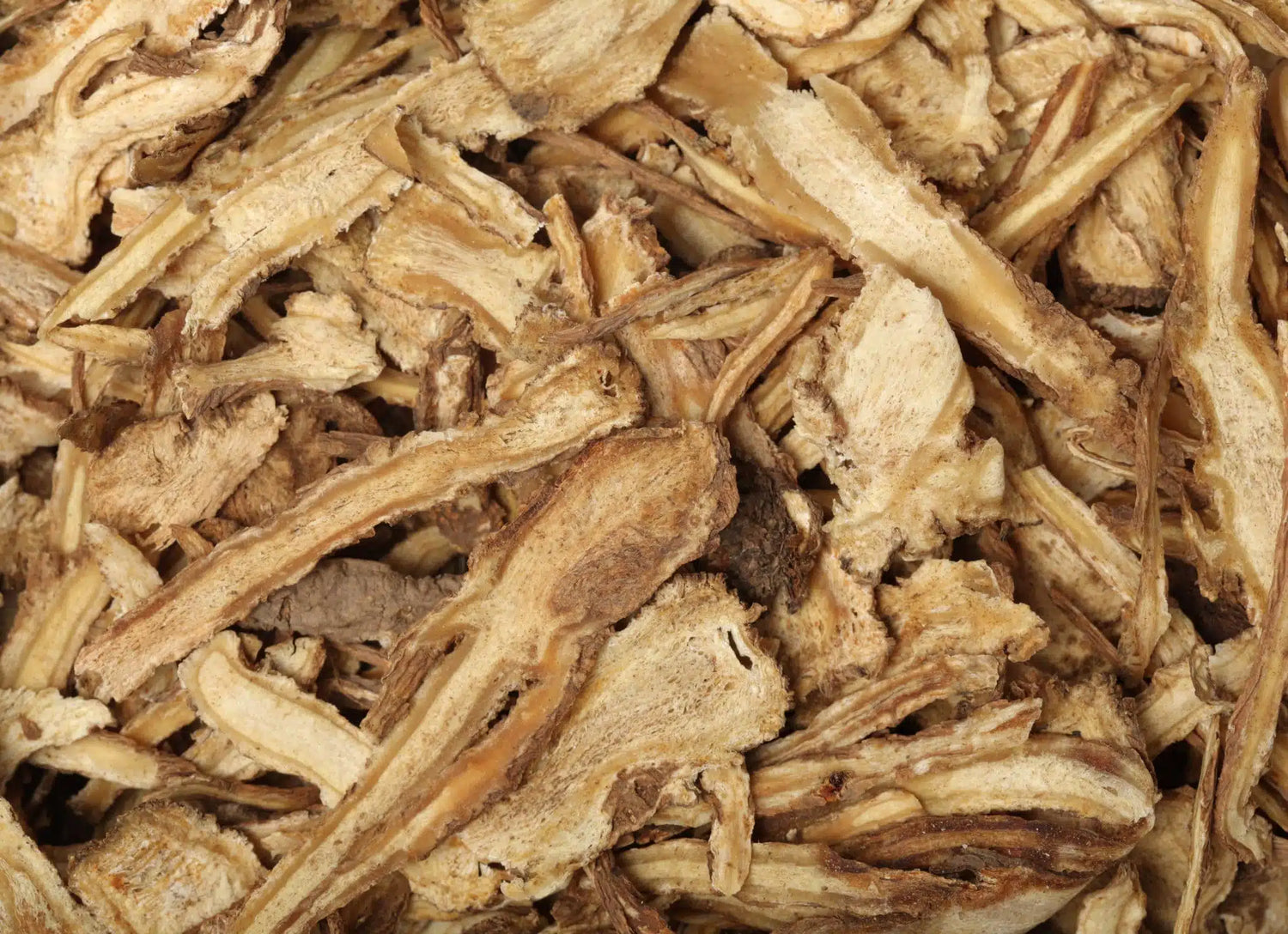Mei Gui Hua (Rose) is one of the most revered and widely administered herbs around the world with a long history of supporting humanity, having been cultivated for more than three thousand years! Whether shared through folk medicine preparations, in clinical practice, or simply by inviting the scent and beauty of this flower into our senses, Rose brings tremendous benefit to both our physical and emotional bodies. Have you ever wondered how TCM conceives of the medicinal properties and uses of Rose in comparison to the Western Herbalism perspective thereof? Where are there commonalities, and where might our understandings diverge?
Chinese Medicine classifies Rose as an herb that regulates Qi (energy/vital life force), a category that typically treats a TCM condition called Qi Stagnation, associated with the Stomach, Liver, and, to a lesser extent, the Lungs. In modern medicine conceptions, we understand that Qi Stagnation often expresses in psychological ways, including as depression, anxiety, irritability, mood swings, and PMS. Mei Gui Hua is known in TCM to have a particular affinity to the Liver and Spleen, supports improved digestion, and helps restore balance between Yin and Yang.
Robin Rose Bennett, an elder Western herbalist sharing the Wise Woman Healing Ways, categorizes Rose primarily as an herb that supports the nervous system, which she describes as a complex communication network coordinating the relationships among all body systems. Of course, Qi is also associated with all bodily systems and the relationships between them. As both of these classifications recognize the interconnection so inherent to holistic health, we can understand why mitigating stagnation is crucial. Although TCM may make this association from a different angle, the nervous system is deeply connected to our emotions, and nourishing this system enhances our capacity for emotional regulation, with significant implications for improved digestion, too (i.e. the “rest and digest” or the parasympathetic nervous system).
When it comes to organ affinities, Bennett also credits Rose with the power to cool Liver Fire, so both Eastern and Western understandings of Rose recognize its support of the Liver. Interestingly, in TCM the Liver is often referred to as the body’s “general,” because it’s tasked with regulating the movements of Qi and bodily fluids. However, the other main organs that Bennett associates with Rose are the Kidney and Heart, for which she says Rose is a tonic; the connection remains alive, even here, for Chinese Medicine conceives of Rose as having a cleansing action on the body, including through urination, which is governed by the Kidneys.
According to the Five Element Theory in Chinese Medicine, the taste of ingredients helps us to determine their actions in the body. Mei Gui Hua is both bitter and sweet; bitter herbs tend to have a cleansing action on the body by clearing excess Heat, drying Dampness, and supporting detoxification through certain elimination pathways – again highlighting Bennett’s Kidney association. The actions associated with a bitter taste elaborate upon Bennett’s teaching that Rose can cool Liver Fire, while also helping to explain their indications in TCM for aiding circulation and promoting hormonal balance. Further, we can see that in both Eastern and Western treatments for hormonal regulation, it is understood that the proper functioning of the Liver is key. Mei Gui Hua is also classified as sweet; herbs with this taste likewise help with detox, tend to slow down acute reactions (pointing again to circulatory support), and have a replenishing action on both Qi and Blood. In a way, this connects to Bennett’s teaching that Rose sweetens the soul and increases the love for life. Indeed, it can often seem easier to connect to these feelings when our cups are full.
With the passage of time, the onset of globalization, and the integration of various traditions in the holistic realm, it’s clear that TCM has influenced Western herbalism and perhaps has been influenced by it, as well. While some differences in our understandings may remain, we can all agree that Rose offers multidimensional healing – then, now, and always.
Please note: preparation is crucial in order to truly receive the benefits of any herb. A new addition to our offerings, the Rose powder is a potent 10:1 extract, delivering a therapeutic dose that merely powdered Rose petals cannot achieve.





